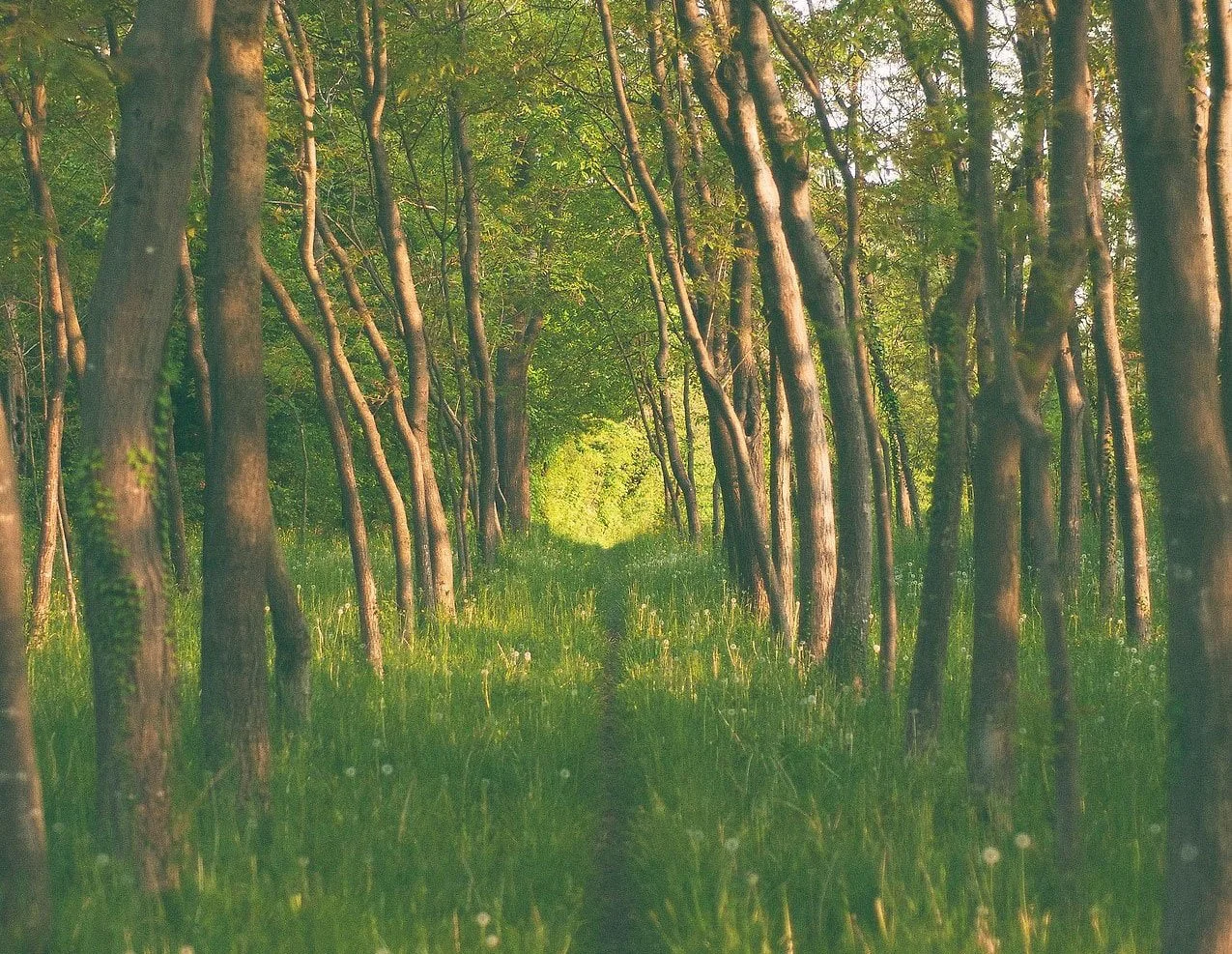Ross and Ayana consider what it means to get people interested in protecting the places that sustain us. How can we inspire the connection with the land that brings people to defend it?
Read MoreErik shares his spiritual path of recognizing interdependence with the Earth and shares how he dreams towards a future where we exist in a mutualistic relationship to the Earth. His wisdom and groundedness is a balm for those tired by the rhetoric of our overculture.
Read MoreFollowing ecology, not theology, Perdita calls us to think about the ecological equation – the reality of bodies feeding other bodies, of death opening a portal to another life. This is a reality that animals, plants, and all our more-than-human kin know well. How can we tap into their earthly wisdom?
Read MoreDetailing her ongoing connection to the earth and the wonder she feels about humanity's place within and as a part of nature, Jacqueline details the way our rhythms are drawn from those of the earth.
Read MoreCollins dives deeply into the world of wealth hoarding and staggering inequality. Recognizing the complexity of these issues, Ayana and Chuck engage deeply with questions of philanthrocapitalism, tax spending, the wealth defense industry, and power inequities across society.
Read MoreAmy brings specific insight to ExxonMobil’s rapid development of oil production in Guyana and details the global complications and power dynamics at play, considering the obscene level of influence huge corporations have in perpetuating global injustice.
Read MoreMaya introduces listeners to the science behind forest fires and urges us to see fire as not simply “destructive,” but rather as one of the many cycles of earth. From practices of cultural burning to current studies on post fire diversity, the creative and regenerative power of the forest cannot be overlooked.
Read MoreWe are challenged to think about our capacity, or willingness, to know invasive plants - Tusha queries listeners, “Do we know their reasons for making home in unfamiliar soils? Or what gifts and responsibilities they carry?” We are left with much to think about in the realm of curiosity and acceptance.
Read MoreAng reveals the complex relations within the hive and the multitude of lessons if we listen rather than impose. Rooting into the rich history of beekeeping and the folk traditions of their ancestors, Ang reminds us of the deeply interconnected world humans and bees share and the reciprocity inherent in right relationship.
Read MoreDr. Carroll pushes back against dominant settler histories about Cherokee migrations and relations to homeland and provides insight into what audience members ought to glean from Indigenous philosophies imparting practices of deep reciprocity, responsibility, and relationship to the land and each other.
Read MoreWe discuss Kyle’s body of work on dystopia and fantasy in climate justice, the reproduction of settler structures, Indigenous science, vulnerability discourses, and “decolonizing allyship.” Kyle concludes with the ever present reminder that our work must be rooted in consent, reciprocity, and trust.
Read MoreWe slow down to acknowledge the beauty and power of fungal decomposition with guest Giuliana Furci who shares a lesson in divine time, the transformation of energy, and the necessity of decomposition.
Ruth shares how tending to the future must center Indigenous values and lifeways and shares the ways in which a just transition can be understood as a cyclical movement inspired by kinship, care, and reciprocity
Read MoreIn the shift from panic to practice, visionary fiction is vital medicine, and adrienne guides us to stretch our minds to see a future beyond what the confines of white supremacy, colonialism, heteropatriarchy, and capitalism tell us is possible.
Read MoreAlong with Dr. Kate Stafford, we listen to the many songs the ocean body sings, asking; how does a warming climate alter the Arctic’s soundscape? Why are the waters of the Arctic becoming louder, and what does this mean for kin like the bowhead?
Read MoreDr. Patricia Kaishian encourages us to think of mycology as a revolutionary and political practice. Diving into queer mycology, we see the ways that fungi challenge binaries of gender, family structure, and even traditional biological classification.
Read MoreNiria Alicia guides us to think about ancestral instruction, precious purpose, rituals for liberation, and what it means to be human in this time. This warm and rich conversation looks at spiritual crisis in tandem with climate crisis, the allure of self-sabotage, and the problem with the many “solutions” we are offered …
Read MoreKerry spans the dreamiest of worlds, from the surreal and psychedelic presence of lichens to the magic of creating life post-capitalism and speaks to the times we are living in, “just like the butterfly that beats its wings and causes a rainstorm around the other side of the world, we have to embrace the chaos of our lives.”
Read MoreJosefina shares her vision for truly sustainable living, what climate change means for Sámi livelihoods, the ways in which many Europeans have severed themselves from Indigenous histories both willfully and forcibly, and the importance of reconciliation processes across the Nordic region.
Read MoreRuth shares how tending to the future must center Indigenous values and lifeways and shares the ways in which a just transition can be understood as a cyclical movement inspired by kinship, care, and reciprocity
Read More










![KYLE WHYTE on the Colonial Genesis of Climate Change [ENCORE] /295](https://images.squarespace-cdn.com/content/v1/5403e5dbe4b04db10d1d362b/1578942140884-JHGF2QH6QLC8U6SWI4GB/154_KyleWhyte_ForTheWildPodcast_Image.jpg)
![GIULIANA FURCI on the Divine Time of Fungal Evolution [ENCORE] /289](https://images.squarespace-cdn.com/content/v1/5403e5dbe4b04db10d1d362b/1624395828059-EEJVEGSST8SNRA09QSPP/Giuliana-Furci_For-The-Wild_Episode4.jpg)
![RUTH ŁCHAV'AYA K'ISEN MILLER on Relations of Reciprocity [ENCORE] /283](https://images.squarespace-cdn.com/content/v1/5403e5dbe4b04db10d1d362b/1632177795095-71PK4OPVRWZAL7N389RI/Ruth-Miller_ForTheWild_Episode.jpg)

![Dr. KATE STAFFORD on What the Whales Hear [ENCORE] /272](https://images.squarespace-cdn.com/content/v1/5403e5dbe4b04db10d1d362b/1594658207902-TJ5LJ9GE41YYXEPXQOZK/Kate-Stafford_For-The-Wild_Image.jpg)


![KERRY KNUDSEN on Lichen and Life after Capitalism [ENCORE] /258](https://images.squarespace-cdn.com/content/v1/5403e5dbe4b04db10d1d362b/1635191062031-TQ4YE597GHWK8TYX3MTC/Kerry-Knudsen_For-The-Wild_Episode.jpg)
